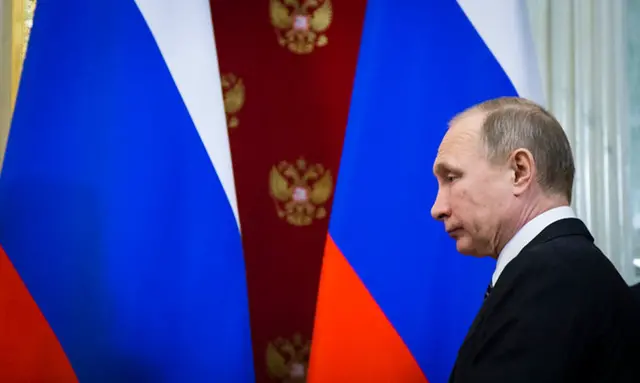Russiahas secretly deployed a new cruise missile that American officials say violates a landmark arms control treaty, posing a major test for President Trump as his administration is facing a crisis over its ties to Moscow.
The new Russian missile deployment also comes as the Trump administration is struggling to fill key policy positions at the State Department and the Pentagon — and to settle on a permanent replacement for Michael T. Flynn, the national security adviser who resigned late Monday. Mr. Flynn stepped down after it was revealed that he had misled the vice president and other officials over conversations with Moscow’s ambassador to Washington.
The ground-launched cruise missile at the center of American concerns is one that the Obama administration said in 2014 had been tested in violation of a 1987 treaty that bans American and Russian intermediate-range missiles based on land.
The Obama administration had sought to persuade the Russians to correct the violation while the missile was still in the test phase. Instead, the Russians have moved ahead with the system, deploying a fully operational unit.
Administration officials said the Russians now have two battalions of the prohibited cruise missile. One is still located at Russia’s missile test site at Kapustin Yar in southern Russia near Volgograd. The other was shifted in December from that test site to an operational base elsewhere in the country, according to a senior official who did not provide further details and requested anonymity to discuss recent intelligence reports about the missile.
American officials had called the cruise missile the SSC-X-8. But the “X” has been removed from intelligence reports, indicating that American intelligence officials consider the missile to be operational and no longer a system in development.
The missile program has been a major concern for the Pentagon, which has developed options for how to respond, including deploying additional missile defenses in Europe or developing air-based or sea-based cruise missiles.
Russia’s actions are politically significant, as well.
It is very unlikely that the Senate, which is already skeptical of Mr. Putin’s intentions, would agree to ratify a new strategic arms control accord unless the alleged violation of the intermediate-range treaty is corrected. Mr. Trump has said the United States should “strengthen and expand its nuclear capability.” But at the same time, he has talked of reaching a new arms agreement with Moscow that would reduce arms “very substantially.”
The deployment of the system could also substantially increase the military threat to NATO nations, depending on where the highly mobile system is based and how many more batteries are deployed in the future. Jim Mattis, the United States defense secretary, is scheduled to meet with allied defense ministers in Brussels on Wednesday.
Before he left his post last year as the NATO commander and retired from the military, Gen. Philip M. Breedlove warned that deployment of the cruise missile would be a militarily significant development that “can’t go unanswered.”
Coming up with an arms control solution would not be easy. Each missile battalion is believed to have four mobile launchers with about half a dozen nuclear-tipped missiles allocated to each of the launchers. The mobile launcher for the cruise missile, however, closely resembles the mobile launcher used for the Iskander, a nuclear-tipped short-range system that is permitted under treaties.
“This will make location and verification really tough,” General Breedlove said in an interview.
While senior Trump administration officials have not said where the new unit is based, there has been speculation in press reports that a missile system with similar characteristics is deployed in central Russia.
The Trump administration is in the beginning stages of reviewing nuclear policy and has not said how it plans to respond.
“We do not comment on intelligence matters,” Mark Toner, the acting State Department spokesman, said. “We have made very clear our concerns about Russia’s violation, the risks it poses to European and Asian security, and our strong interest in returning Russia to compliance with the treaty.”
(THE NEW YORK TIMES)
 简体中文
简体中文

